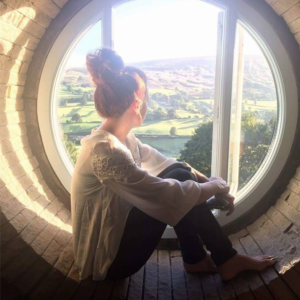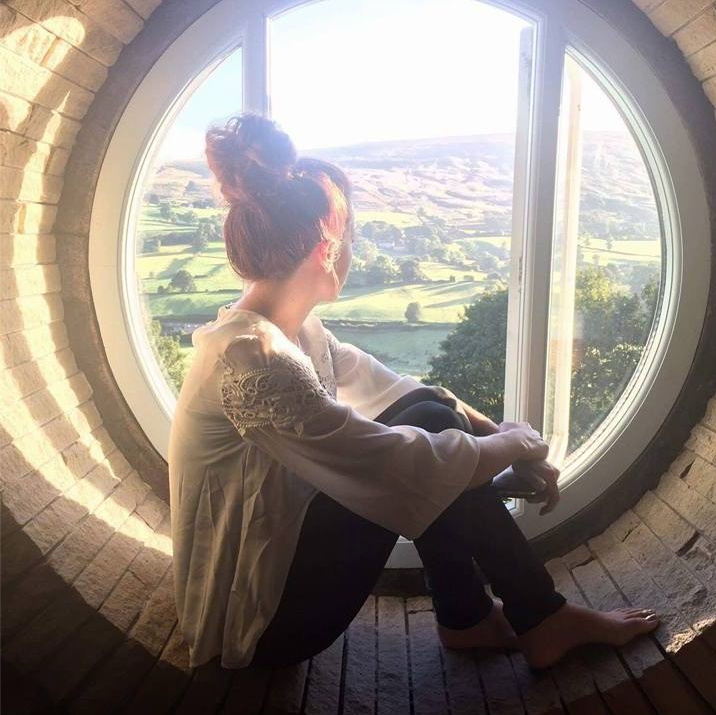Lindsay Hansen Park, assistant director of Sunstone, host of Year of Polygamy Podcast and blogger returns to A Thoughtful Faith to discuss the state of progressive Mormonism. We talk openly and honestly about Progressive Mormonism’s problems and promise. We raise several questions about the progressive Mormon movement, both its shadow and its light. 


It’s hard for me not to feel attracted to Lindsay’s voice, but thank you very much for the introspective conversation and realizing that the progressive way may not be “a better” way, but just another way… (to Christ). And that the lie is that there is a better way.
While Christ may be the way, there seems to be many ways to reach Christ. Perhaps it is our duty to inform ourselves of the multiple ways we can reach Him.
Some of my favorite soundbites were:
Embrace paradox, in brokenness we can find light, because it gives us permission to be broken too…
And everything that light shines upon also leaves a darkness and a shadow, and Darkness & Light can both inform us.
Thanks to both of you for taking the time to record this conversation. It is very helpful.
I take away from it that I need to be a cafeteria progressive Mormon and own what I agree with and own it.
Here is my unsolicited critique of progressive Mormonism. I think members of progressive Mormonism use terms like complexity, nuance, and ‘thoughtful’ as a crutch sometimes and at times when it isn’t applicable.
Yes the truth is frequently more complicated than people give it credit for, but sometimes it isn’t as complicated as we’d like to be.
And as far as I’m concerned the idea that the church will ‘progress’ was shattered last November.
Lindsey, can you point out some of the things you’ve been looking at (LDS and other) related to the veil?
Sorry….Lindsay.
Wow. This is such an important discussion. Thank you (both of you) for all of this. I’m going to have to listen to it again, but there is so much here that is worth our reflection. In recent months, I have distanced myself from the progressive Mormon community because its social structure has seemed like such a mirror of the Mormon culture that I found so harmful. It was heartening to attend the Sunstone Symposium in Salt Lake City this year and see such a conscious effort to bring people together. I hope that will begin to happen in the online community as well, but for now, I am personally safer walking away from it. I will, however, continue to follow the two of you and A Thoughtful Faith to see this discussion unfold. Thank you!
Pingback: Are We Human? | Conor Hilton
Lindsay is such a dedicated, honest journalist and historian. She is my priestess of the journey, my priestess of American history, priestess of compassion, taking you through and beyond plain facts to patterns, comparisons, considerations, more questions. Rock steady. And wow, who is the photographer of that beautiful pic?
Great conversation. You’ll see why in a minute. But, first, I hope I understood what was being discussed. I have always been slow on the uptake. “Progressive Mormonism.” I might be confused on what the definition is. Initially, I thought it referred to “progressive” members in the LDS church. As the conversation continued, it sounded like “progressive” somehow might include all branches of Mormonism.
So, I might be getting this wrong. But, I’m going to assume the discussion was centered around the LDS version.
Here are the buzz words that got me buzzed with excitement:
Collective action is needed.
Concrete Ideas get traction
Ideas are needed that we can coalesce around
“Decentralize the power of the Mormon identity, reclaim it and give it back to the people.”-Lindsay
“If it doesn’t organize around something, I’m going to get tired of it.”–Gina
Must have intention
Shared intention
We need to have conversations with intention
To me all this SCREAMS Common Consent. Decentralize & reclaim. That is exactly what Consent is all about.
Intention? My faith journey started in June of 2014. It took me until February of 2016 to get my feet under me again. Until then, I read and participated in lots of conversations without “intention.” They were informative, therapeutic, and validating.
But, once I had cobbled together a path forward, I rapidly grew tired of conversations without intentions. The best intention that I’ve found is the Law of our church that gives every member a voice in its governance.
If “reclaiming it is likely a fools errand” (Lindsay), then I’m a fool who has fully embraced this errand.
I have no real reach in the progressive Mormon world. Yet 262 members have now put their names on a public Register meant to record their disapproval. I’d love to start a conversation with “intention” involving those who do have real reach.
https://www.gopetition.com/petitions/register-for-voting-opposed.html
I listened through the whole thing. At which point did that great discussion happen? I think the whole interview lacked some serious substance. This was more of a soft core rant about how the person being interviewed feels about things. It’s not a discussion, it’s a monologue. Not trying to be mean, just saying that “I oppose” is not a well defined critique.
Pingback: 6 poems about faith crisis – Our Thoughts